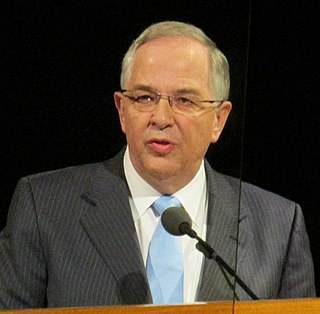A Quote by Stefan Zweig
As nature requires whirlwinds and cyclones to release its excessive force in a violent revolt against its own existence, so the spirit requires a demonic human being from time to time whose excessive strength rebels against the community of thought and the monotony of moralityonly by looking at those beyond its limits does humanity come to know its own utmost limits.
Related Quotes
It is against their own insoluble problem of being human that the dull and base in humanity are in revolt in anti-Semitism. Judaism, nevertheless, together with Hellenism and Christianity is an inalienable component of our Christian Western civilization, the eternal "call to Sinai" against which humanity again and again rebels.
The typical atheist rebels against God as a teenager rebels against his parents. When his own desires or standards are not fulfilled in the way that he sees fit, he, in revolt, storms out of the house in denial of the Word of God and in scrutiny of a great deal of those who stand by the Word of God. The epithet 'Heavenly Father' is a grand reflection, a relation to that of human nature.
My young friends, ... not all the whirlwinds in life are of your own making. Some come because of the wrong choices of others, and some come just because this is mortality. You are His son or His daughter. He made your spirit strong and capable of being resilient to the whirlwinds of life. The whirlwinds in your youth, like the wind against a young tree, can increase your spiritual strength, preparing you for the years ahead.
Physical weather certainly is beyond our control. ... But human weather - the psychological climate of the world - is not beyond our control. The human race is its own rain and its own sun. It creates its own cyclones and anti-cyclones. The ridges of high pressure which we sometimes enjoy, the troughs of low pressure which we so often endure, are of our own making and nobody else's.
Success also requires the courage to risk disapproval. Most independent thought, new ideas, or endeavors beyond the common measure are greeted with disapproval, and ranging from skepticism and ridicule to violent outrage. To persevere in anything exceptional requires inner strength and the unshakable conviction that you are right.
Every epoch which seeks renewal first projects its ideal into a human form. In order to comprehend its own essence tangibly, the spirit of the time chooses a human being as its prototype and raising this single individual, often one upon whom it has chanced to come, far beyond his measure, the spirit enthuses itself for its own enthusiasm.
A time comes when silence is betrayal. Even when pressed by the demands of inner truth, men do not easily assume the task of opposing their government's policy, especially in time of war. Nor does the human spirit move without great difficulty against all the apathy of conformist thought, within one's own bosom and in the surrounding world.
Man feels the urge to run up against the limits of language. Think for example of the astonishment that anything at all exists. This astonishment cannot be expressed in the form of a question, and there is also no answer whatsoever. Anything we might say is a priori bound to be nonsense. Nevertheless we do run up against the limits of language. Kierkegaard too saw that there is this running up against something, and he referred to it in a fairly similar way (as running up against paradox). This running up against the limits of language is ethics.
The beggarly question of parentage--what is it, after all? What does it matter, when you come to think of it, whether a child is yours by blood or not? All the little ones of our time are collectively the children of us adults of the time, and entitled to our general care. That excessive regard of parents for their own children, and their dislike of other people's, is, like class-feeling, patriotism, save-your-own-soul-ism, and other virtues, a mean exclusiveness at bottom.
He imagined the pain of the world to be like some formless parasitic being seeking out the warmth of human souls wherein to incubate and he thought he knew what made one liable to its visitations. What he had not known was that it was mindless and so had no way to know the limits of those souls and what he feared was that there might be no limits.






































